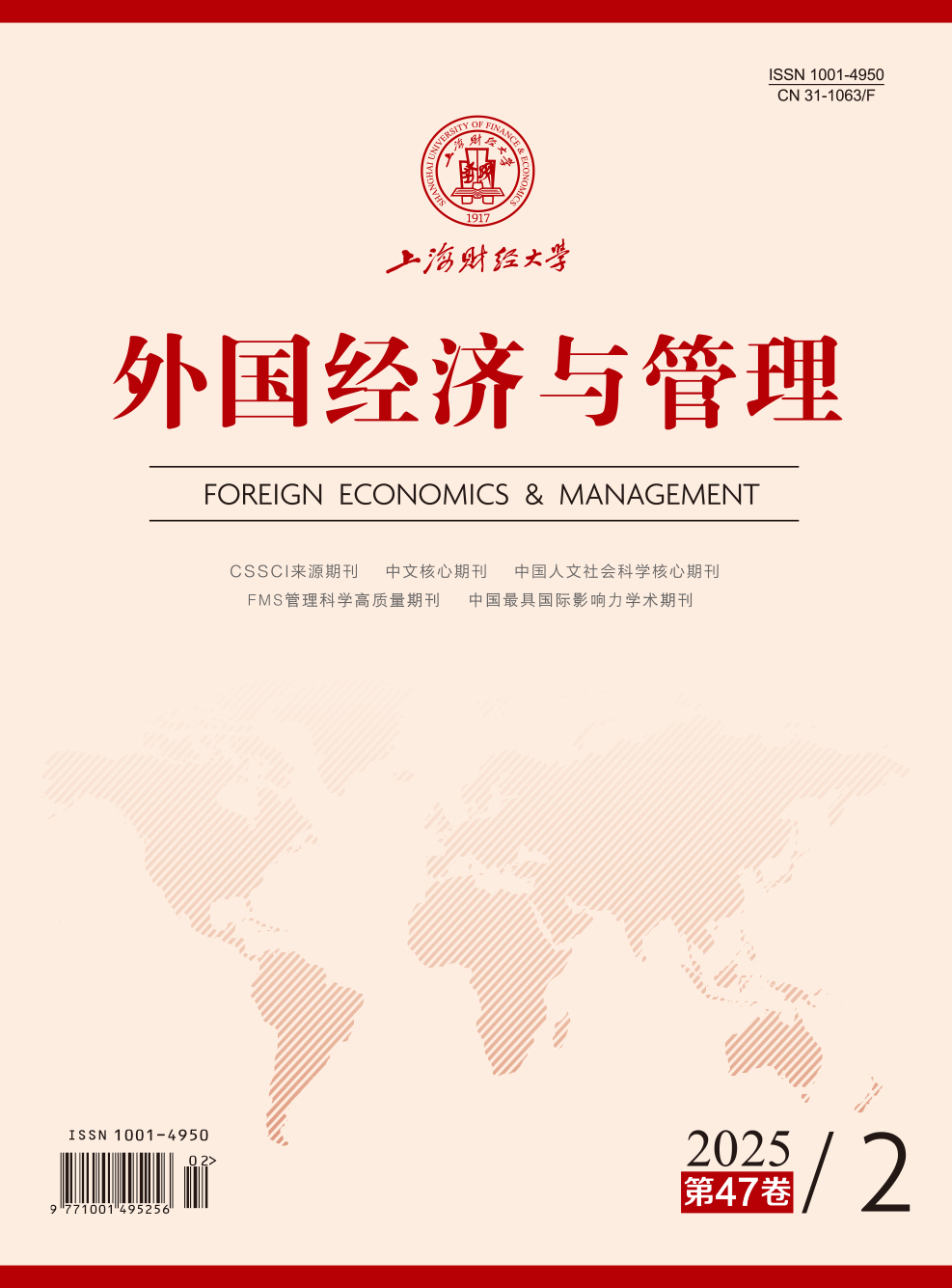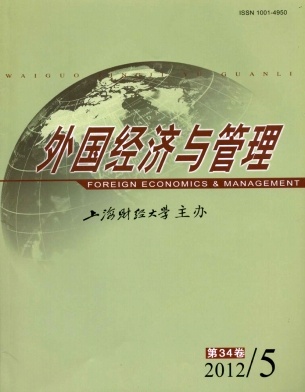税收制度的公司治理效应研究前沿探析与未来展望
外国经济与管理 2012 年 第 34 卷第 05 期, 页码:75 - 81
摘要
参考文献
摘要
作为公司治理的法律外制度,税收制度能通过影响公司管理层行为减轻或者放大公司治理问题。由于税收制度由政府主导,并且在很大程度上是通过税收征管的正外部性对公司治理产生影响,因此,税收制度具有很强的公司治理效应。基于此,本文系统梳理了有关税收制度公司治理效应的研究文献,以公司税为例从税收制度的公司治理效应及其对公司价值的影响两个方面对国外研究进行了述评,最后对未来研究方向进行了展望。
[1]Arlen J and Deborah M W.A political theory of corporate tax-ation[J].Yale Law Journal,1995,105(1):325-391.
[2]Avi-Yonah R.The three goals of taxation[J].Tax Law Re-view,2006,60(1):1-25.
[3]Coffee J.Do norms matter?A cross-country examination of private benefits of control[R].Working Paper,2001.
[4]Desai M A and Dharmapala D.Corporate tax avoidance and firm value[R].Working Paper,2006a.
[5]Desai M A and Dharmapala D.Corporate tax avoidance and high-powered incentives[J].Journal of Financial Economics,2006b,79(1):145-179.
[6]Desai M A and Dharmapala D.Taxation and corporate govern-ance:An economic approach[R].Working Paper,2007.
[7]Desai M A,et al.Taxation and corporate governance[R].Working Paper,2003.
[8]Desai M A,et al.Theft and taxes[J].Journal of Financial Eco-nomics,2007,84(3):591-623.
[9]Dyck A and Zingales L.Private benefit of control:An interna-tional comparison[J].The Journal of Finance,2004,59(2):537-600.
[10]Edwards C,et al.Germany’s repeal of the corporate capital gains tax:The equity market response[J].Journal of the A-merican Taxation Association,2004,26(s-1):73-97.
[11]Hanlon M,et al.An empirical examination of corporate tax noncompliance[A].Auerbach A J,et al(Eds.).Taxing cor-porate income in the21st century[C].Cambridge:Cambridge University Press,2007:171-209.
[12]Hanlon M,et al.What does tax aggressiveness signal?Evi-dence from stock price reactions to news about tax aggres-siveness[R].Working Paper,2007.
[13]Haw In-Mu,et al.Ultimate ownership,income management,and legal and extra-legal institutions[J].Journal of Account-ing Research,2004,42(2):423-462.
[14]Holmen M and Hgfeldt P.Pyramidal discounts:Tunneling or agency costs?[R].Working Paper,2005.
[15]Manzon G B Jr and Plesko G A.The relation between finan-cial and tax reporting measures of income[J].Tax Law Re-view,2002,55(2):175-214.
[16]Martin H and Peter H.Pyramidal discounts:Tunneling or overinvestment?[J].International Review of Finance,2009,9(1-2):133-175.
[17]Modigliani F and Miller M H.The cost of capital,corporation finance and the theory of investment[J].The American Eco-nomic Review,1958,48(3):261-297.
[18]Modigliani F and Miller M H.Corporate income taxes and the cost of capital:A correction[J].American Economic Re-view,1963,53(3):433-443.
[19]Morck R.Why some double taxation might make sense:The special case of inter-corporate dividends[R].Working Paper,2003.
[20]Morck R K.How to eliminate pyramidal business groups:The double taxation of intercorporate dividends[J].Tax Poli-cy and the Economy,2005,19(1):135-179.
[21]Morck R K,et al.Inherited wealth,corporate control and e-conomic growth:The Canadian disease?[R].Working Pa-per,1999.
[22]Morck R K and Yeung B.Dividend taxation and corporate governance[J].Journal of Economic Perspectives,2005,19(3):163-180.
[23]Nicola S.Effects of strategic tax behaviors on corporate gov-ernance[R].Working Paper,2009.
[24]Pistor K and Xu Chenggang.Governing stock markets in transition economies:Lessons from China[J].American Law and Economics Review,2005,7(1):184-210.
[25]Roe M.Political elements in the creation of the mutual fund industry[J].University of Pennsylvania Law Review,1991,139(6):1469-1511.
[26]Slemrod J.The economics of corporate tax selfishness[J].National Tax Journal,2004,9(57):877-899.
[27]Stiglitz J E.Quis custodiet ipsos custodes?Corporate govern-ance failures in the transition[R].World ABCD Conference,Paris,1999.
[28]Stulz R and Williamson R.Culture,openness and finance[J].Journal of Financial Economics,2003,70(3):313-349.
[29]Wolfgang S.Tax and corporate governance:A legal approach[R].Working Paper,2006.
[2]Avi-Yonah R.The three goals of taxation[J].Tax Law Re-view,2006,60(1):1-25.
[3]Coffee J.Do norms matter?A cross-country examination of private benefits of control[R].Working Paper,2001.
[4]Desai M A and Dharmapala D.Corporate tax avoidance and firm value[R].Working Paper,2006a.
[5]Desai M A and Dharmapala D.Corporate tax avoidance and high-powered incentives[J].Journal of Financial Economics,2006b,79(1):145-179.
[6]Desai M A and Dharmapala D.Taxation and corporate govern-ance:An economic approach[R].Working Paper,2007.
[7]Desai M A,et al.Taxation and corporate governance[R].Working Paper,2003.
[8]Desai M A,et al.Theft and taxes[J].Journal of Financial Eco-nomics,2007,84(3):591-623.
[9]Dyck A and Zingales L.Private benefit of control:An interna-tional comparison[J].The Journal of Finance,2004,59(2):537-600.
[10]Edwards C,et al.Germany’s repeal of the corporate capital gains tax:The equity market response[J].Journal of the A-merican Taxation Association,2004,26(s-1):73-97.
[11]Hanlon M,et al.An empirical examination of corporate tax noncompliance[A].Auerbach A J,et al(Eds.).Taxing cor-porate income in the21st century[C].Cambridge:Cambridge University Press,2007:171-209.
[12]Hanlon M,et al.What does tax aggressiveness signal?Evi-dence from stock price reactions to news about tax aggres-siveness[R].Working Paper,2007.
[13]Haw In-Mu,et al.Ultimate ownership,income management,and legal and extra-legal institutions[J].Journal of Account-ing Research,2004,42(2):423-462.
[14]Holmen M and Hgfeldt P.Pyramidal discounts:Tunneling or agency costs?[R].Working Paper,2005.
[15]Manzon G B Jr and Plesko G A.The relation between finan-cial and tax reporting measures of income[J].Tax Law Re-view,2002,55(2):175-214.
[16]Martin H and Peter H.Pyramidal discounts:Tunneling or overinvestment?[J].International Review of Finance,2009,9(1-2):133-175.
[17]Modigliani F and Miller M H.The cost of capital,corporation finance and the theory of investment[J].The American Eco-nomic Review,1958,48(3):261-297.
[18]Modigliani F and Miller M H.Corporate income taxes and the cost of capital:A correction[J].American Economic Re-view,1963,53(3):433-443.
[19]Morck R.Why some double taxation might make sense:The special case of inter-corporate dividends[R].Working Paper,2003.
[20]Morck R K.How to eliminate pyramidal business groups:The double taxation of intercorporate dividends[J].Tax Poli-cy and the Economy,2005,19(1):135-179.
[21]Morck R K,et al.Inherited wealth,corporate control and e-conomic growth:The Canadian disease?[R].Working Pa-per,1999.
[22]Morck R K and Yeung B.Dividend taxation and corporate governance[J].Journal of Economic Perspectives,2005,19(3):163-180.
[23]Nicola S.Effects of strategic tax behaviors on corporate gov-ernance[R].Working Paper,2009.
[24]Pistor K and Xu Chenggang.Governing stock markets in transition economies:Lessons from China[J].American Law and Economics Review,2005,7(1):184-210.
[25]Roe M.Political elements in the creation of the mutual fund industry[J].University of Pennsylvania Law Review,1991,139(6):1469-1511.
[26]Slemrod J.The economics of corporate tax selfishness[J].National Tax Journal,2004,9(57):877-899.
[27]Stiglitz J E.Quis custodiet ipsos custodes?Corporate govern-ance failures in the transition[R].World ABCD Conference,Paris,1999.
[28]Stulz R and Williamson R.Culture,openness and finance[J].Journal of Financial Economics,2003,70(3):313-349.
[29]Wolfgang S.Tax and corporate governance:A legal approach[R].Working Paper,2006.
引用本文
张斌, 徐琳. 税收制度的公司治理效应研究前沿探析与未来展望[J]. 外国经济与管理, 2012, 34(5): 75–81.
导出参考文献,格式为:
下一篇:投稿须知(新版)





 6451
6451  544
544

